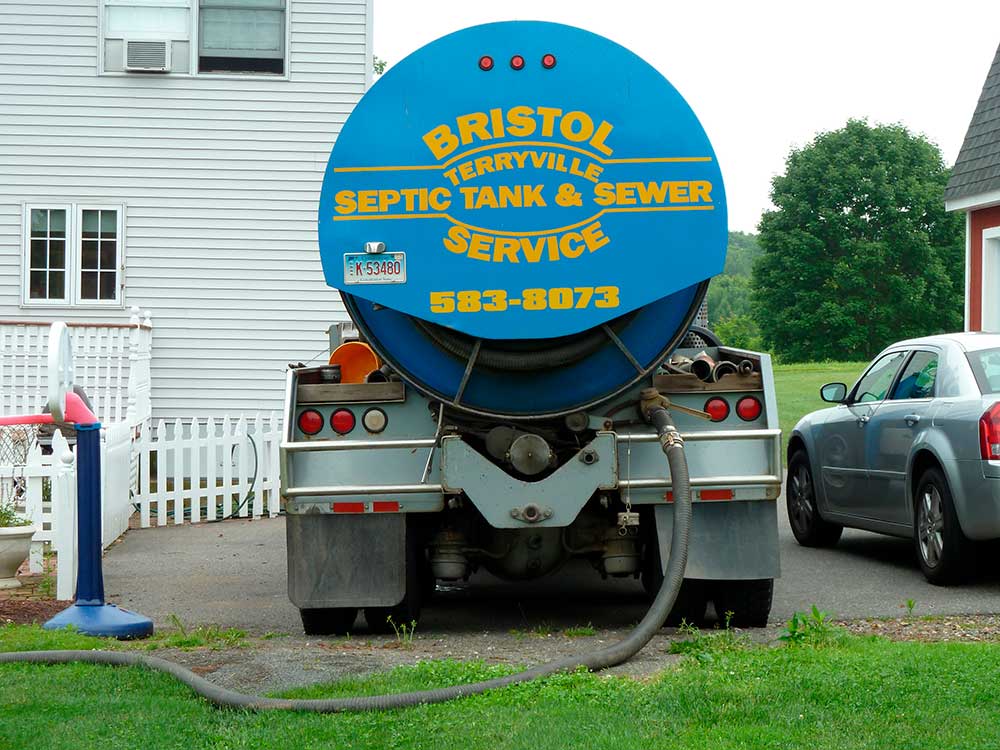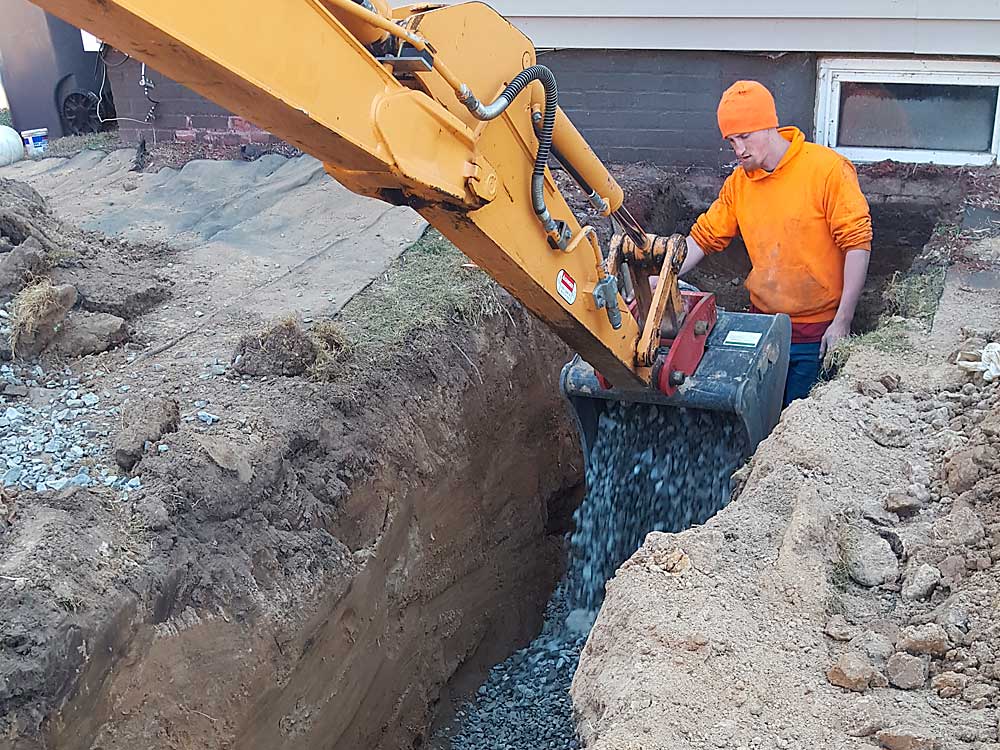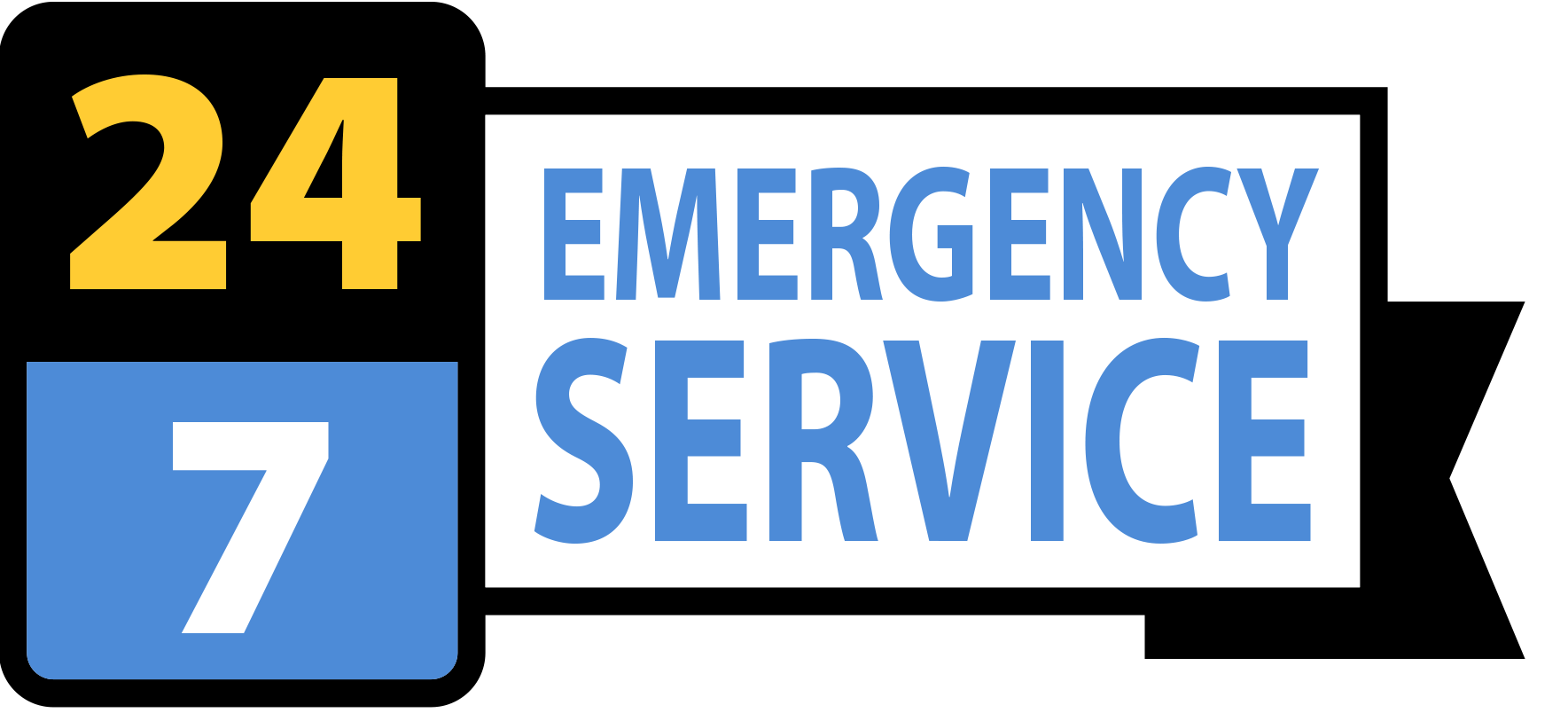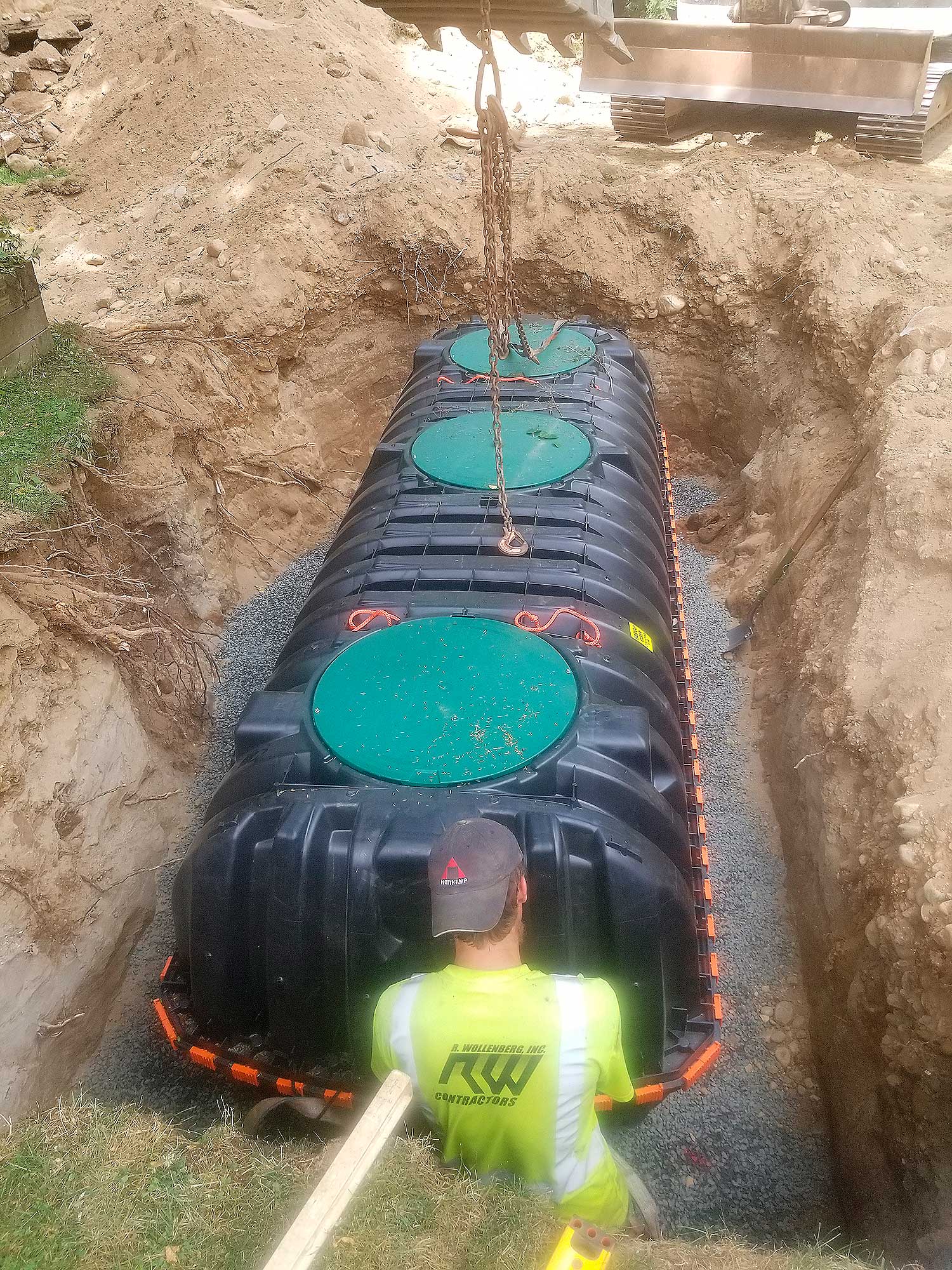Sewer and Septic Services
Bristol Terryville Septic and Sewer has provided over 35 years of service to parts of Litchfield, Hartford and New Haven Counties for both residential and corporate properties.
Residential Septic and Sewer Services
- Septic Tank Pumping – gurgling in the toilet, issues with flushing, septic backup, clogged outlet filter, regular maintenance every 2-5 years depending on septic tank size and usage
- Septic Pump Chamber Service – when septic pump chamber alarm is triggered, don’t just shut the alarm off, call BTSSS and schedule your pump chamber service today!
- Service effluent pumps – service floats and alarms
- Septic Tank Riser Installation – CT state health code requires risers on septic tank access covers that have more than 12 inches of earth cover.
- Septic Tank Baffle Replacement – routine pumping and inspection could disclose eroded/deteriorated/missing inlet or outlet baffles and will need replacement
- Septic Line Cleaning & Sewer Line Cleaning – septage and sewage backup in the house through shower, sink or washing machine drains and/or toilet, clear this issue up with power snaking
- Hot water jetting services is available for soft blockages caused by disposable items (anything but roots)
- Power snaking to clear out roots and other hard debris
- Written Septic Inspection Reports for Real Estate Transactions – when buying your new home call BTSSS for a written septic inspection

Commercial Septic and Sewer Services
- Grease Trap Pumping – regularly scheduled grease trap maintenance about every 2-3 months
- Hot water jetting available for drain lines that are clogged with grease
- Real Estate – septic inspections for commercial buildings
- Condition of the septic tank and baffles
- Size (gallons) and material construction of septic tank
- If property is serviced by an on-site well – measuring the distance from the septic tank to well
- Visual inspection of the septic leaching area
- Stress test/push test of the septic system
- Location of the septic system in relation to the house
- Portable Toilets – porta potties available for rent

Expanded Septic and Sewer Services through our sister company, R. Wollenberg, Inc.
Providing More Than Just General Septic Maintenance for Over 50 Years… R. Wollenberg, Inc., offers expertise in septic systems installations, septic system repairs and new sewer and water service connections as a complete residential and commercial site work contractor. R. Wollenberg, Inc., provides services that are complementary to Bristol Terryville Septic and Sewer Service.
Here’s What Our Customers Are Saying…
Frequently Asked Questions
How Often Should I Have My Tank Pumped Out?
Every two to five years based on usage and tank size
Should I feed my tank with septic tank additives?
If your septic system is working properly you do not need to use septic additives. Introducing these chemicals can be detrimental to the natural bacteria in your septic system and may even cause corrosion. No septic tank additive is better than natural septic tank function and use of healthy bacteria. There is no substitute for regular septic tank pumping and inspection.
How do I know how big my tank is?
Health district/town records or previous pumping records
What type of toilet paper should I use?
Select a brand that states it is septic safe, for example one ply is best and avoid quilted toilet paper.
Should the water conditioning system be discharged into my septic system?
No. CT state health code does not allow for the discharge of the water conditioning system into the septic system for several reasons. The water conditioning system needs to be discharged to a separate leaching area.
What items should not be fed into a septic systems?
Items include, but are not limited to:
• Toxic and hazardous chemicals
• Plastics
• Catbox litter
• Cigarette filters
• Feminine hygiene products
• Paper towels and facial tissues
• Kitchen grease and fats
What three factors indicate how often a septic system needs to be pumped out?
1. The size of your tank
2. The flow of wastewater which is related to how many people are in the household
3. The volume of solids in the wastewater
How often should my septic system be inspected?
You should have your septic system inspected every time it is serviced.
How does a homeowner prevent additional stress on the septic system?
Be conservative with the use of water. For example:
• Spacing laundry throughout the week
• Fixing leaks
• Use low flow faucet aerators on sink faucets and reduced flow shower heads
How does a homeowner protect and prolong the life of the absorption/leach field?
• Do not drive over
• Do not plant trees or shrubbery
• Do not cover with concrete and asphalt
• Divert runoff away from absorption/leach field
Septic System Do’s and Don’ts
Care
Often overlooked or neglected is the fact that a septic tank system should have an annual checkup. The holding or septic tank traps the solids in the wastewater and should be checked to determine whether or not it is time for it to be pumped out. The inspection port should be opened and the baffles checked to ensure that they have not been damaged since the last checkup.
The absorption field should be checked for sogginess or flooding, indicating improper drainage, a clogged system or excessive water use. The entire area containing the system should be checked for damp or soggy areas or odors, indicating a leak in the system.
A properly designed septic tank system will have a holding tank with sufficient space to accumulate solids for up to three years. When the level of the solids fills too much space in the holding tank, the wastewater has less time to settle properly and too many solid particles flow into the absorption field. This will eventually clog it to the point where a new field will be needed.
The Holding Tank
How often you need to pump the solids out of your holding tank depends on three major factors. First is the size or capacity of the tank itself. If more people are living in the home than when the system was installed, or if new high-water use technologies such as a hot tub or whirlpool are now in use, then the capacity could be too small. It would then be necessary to pump out the system more frequently. Too large a system should not be a problem for septic tank maintenance. It simply means you have to empty the solids less often.
The number of people in the household is also related to the second factor, the flow of wastewater. Obviously, the more people in the household, the more water will flow through the system.
The third factor for determining how often you must pump the solids out of your holding tank is the volume of solids in the wastewater. If you have a garbage disposal, for example, you will have to pump out your system more frequently than persons disposing of their food wastes through other means. If the occupation of someone in the household results in their having excessively soiled clothes, a construction worker or a coal miner, for example, the washing of these kinds of clothes will also add solids to your tank at a higher rate than normal.
Table 1 lists how often you need to pump out your holding tank on average, given the size of the tank & the number of persons living in the household. These figures were calculated assuming there was no garbage disposal unit hooked up to the system. The use of a garbage disposal will increase the amount of solids in the holding tank by as much as 50%.
You can make a specific determination of when it’s time to pump out the solids by occasionally checking the depth of the solids and the level of the scum build up on top of the water in the tank. But because this is an unpleasant task, the best solution is to have the tank routinely pumped by a certified contractor every three years.
Be sure that when the tank is pumped out, the contractor uses the large manhole, usually located in the center of the tank. Using one of the inspection ports could damage the baffles inside the tank (see Figure 1). Damage to the baffles could result in the wastewater flowing directly into the absorption field without the opportunity for the solids to settle out.
Remember, commercial septic tank additives will not eliminate the need for periodic clean out. Be sure the holding tank is completely emptied. It is not necessary to retain any of the solids to restart the digestive process. Although commercial products are available for “seeding” the septic with desirable bacteria, biological or chemical additives are not needed for successful operation of your septic system.
Absorption Field
An absorption field generally does not require any maintenance. However, to protect and prolong the life of the absorption field, follow these simple rules:
● Do not drive over the absorption field with cars, trucks or heavy equipment
● Do not plant trees or shrubbery in the absorption field area. The roots will get into lines, plugging them up
● Do not cover the absorption field with a hard surface such as concrete or asphalt. Grass is the best cover for the field. The grass will not only prevent erosion, but it also helps remove excess water
● Divert surface runoff water from roofs, patios, driveways and other areas away from the absorption field
Feeding the System
FEEDING
What you put into your septic tank system will have a direct effect on whether or not you have a healthy, long lasting and trouble-free system. Your septic tank system is not a dispose-all.
THE DIET
Keep all toxic and hazardous chemicals out of your septic systems. Even small amounts of paints, varnishes, thinners, waste oil, photographic solutions, pesticides and other organic chemicals can destroy the biological digestion taking place within your system.
Plastics, cat box litter, cigarette filters, sanitary napkins, paper towels and facial tissues should not be disposed of in your septic system. These items quickly fill your holding tank with solids, decrease its efficiency and require that you pump out the tank more frequently.
Avoid dumping grease or fats down your kitchen drain. They solidify and the accumulation may contribute to blockages in your system.
If you have a water softener, the size of the absorption field must be increased to accept the additional flow.
OVERFEEDING
Another way to prolong the life of your septic tank system is to be conservative with your use of water. For example, up to 53 gallons of water are discharged into your system with each load of laundry. If several loads are done in one day, it can put considerable stress on your system. A better practice would be to space out your laundry washing throughout the week.
The new ultra-low flush toilet uses between 1-1.6 gallons of water and will provide a 30% water saving. Low-flow faucet aerators on sink faucets and reduced-flow shower heads will save additional water. FIX all leaks immediately.
Following these simple rules regarding the maintenance and operation of your septic tank system will keep your problems to a minimum. It is really not a complicated or sophisticated system. A minimum amount of care will result in many years of trouble-free operation.
Contact Us for Your Septic and Sewer Needs
860-583-8073
John Pierce, Technician • john@bristolseptic.com
Dan Wollenberg, Managing Partner • dan@bristolseptic.com


